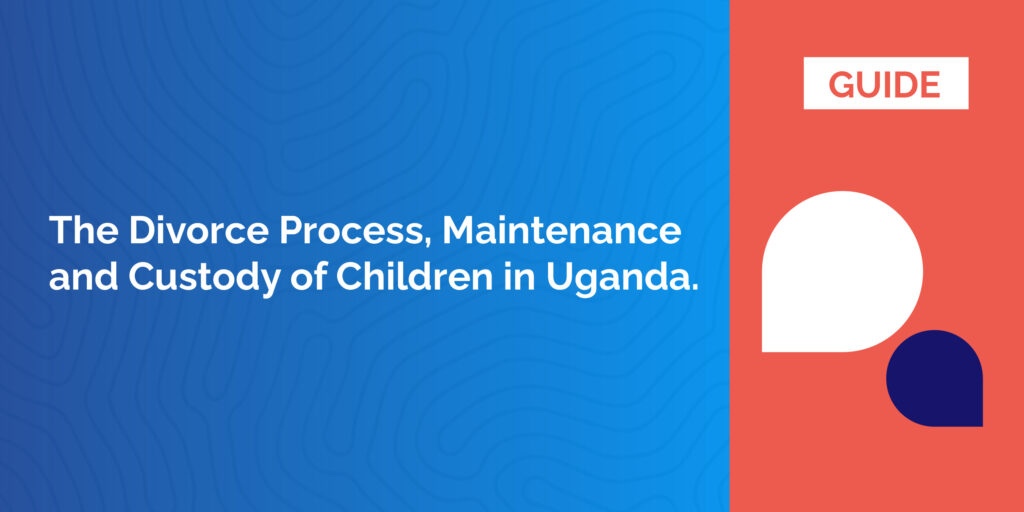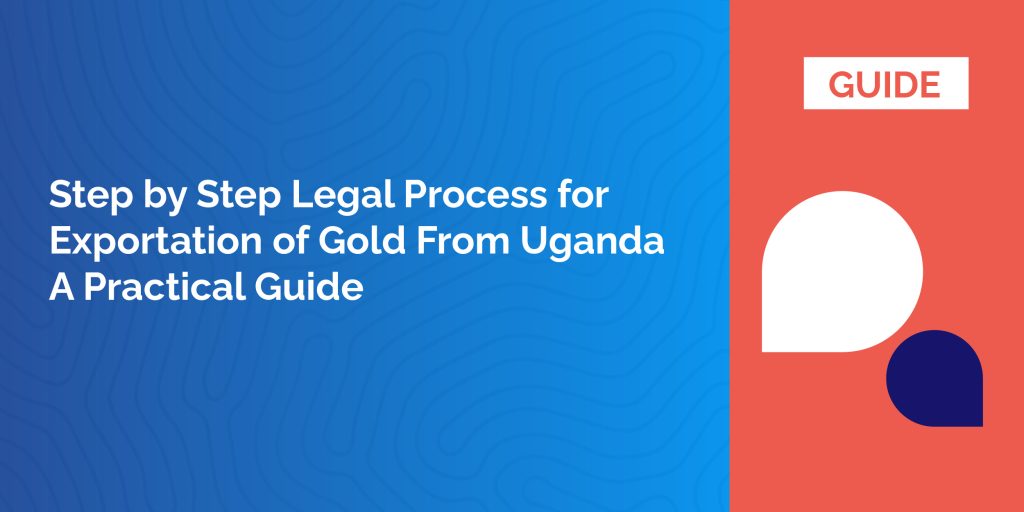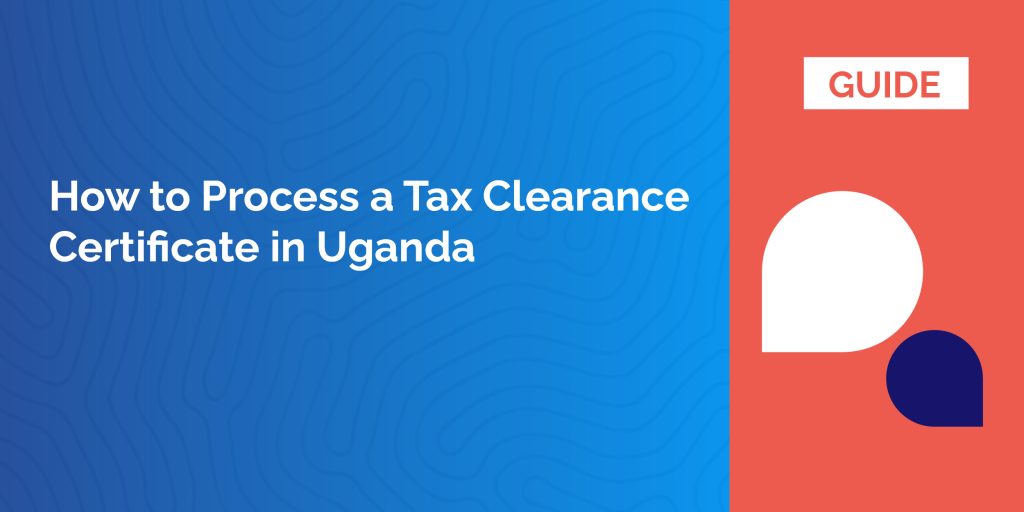Background
Where as several couples commence relationships and end up making the decision to say “I do” thereby committing to enjoy the companionship of each other till death parts them, often time intervening factors inescapably cause them to file for divorce against each other. Divorce legally means the ending of a formal legally recognized marriage and this happens through the filing of a divorce petition in an appropriate court in Uganda.
During the divorce process in Uganda, the court on addition to dissolving the marriage, it also pronounces its self on the custody of children (including adopted children if any), Maintenance of children and distribution of property. The laws in Uganda provide clarity in dealing with all these aforementioned aspects. According to the Constitution of the Republic of Uganda (1995), “Men and women of the age of eighteen years and above have the right to marry and to found a family and are entitled to equal rights in marriage, during marriage and at its dissolution(divorce).
Before Court proceeds with the petition for divorce, it seeks to confirm that the parties appearing before it indeed are married. Marriage in Uganda takes the forms namely; a) Civil Marriage b) customary marriage c) mohammedan marriage d) church marriage and e) Hindu marriage.
The Law governing Divorce in Uganda
The Laws governing the aspect of Divorce in Uganda include among others the following;
- The 1995 Constitution of the Republic of Uganda as amended
- The Divorce Act
Grounds for grant of divorce in Uganda
Divorce in Uganda is granted by the court of competent jurisdiction following the filing of a competent petition. Section 4 of the Divorce Act provides for the grounds and makes them available differently to husbands and wives. This section however was declared unconstitutional for setting out separate grounds for men and women in Uganda Association of Women Lawyers & 5 others vs Attorney General, Constitutional Petition No. 2 of 2003. As such the grounds based upon which Court can grant a decree of divorce are;
- Adultery
- Desertion for two or more years, and
- Cruelty
There is no legal requirement to prove more than one ground to persuade court to grant divorce. As such presence of proof of any of the grounds above is sufficient to enable Court to grant a decree Nissi.
Importantly, an individual contemplating divorce does not need to bother him or her self with the grounds. Your lawyer will always listen to your story and align your facts to the appropriate ground or guide you otherwise.
The detailed divorce process in Ugandan Courts
The process for obtaining a divorce in Uganda Courts is lengthy one but can be concluded swiftly especially where your appointed lawyer is familiar with the entire process. The detailed divorce process as outlined below;
- Filing a divorce petition
This requires the intending petitioner to appoint a family lawyer to conduct an interview that will enable determination of the grounds for divorce as well as the documentation that should support the petition. I always advise lawyers to support the petition with an independent affidavit. The reason for this is to anticipate that should the Respondent choose not to file an answer to the petition, the pleadings of the Petitioner already contain evidence to support the petition without having to file witness statements and trial bundles afresh.
- Summons to answer petition
The two documents namely the petition and the summons to answer petition can be filed separately but good practise requires that these two documents are filed at the same time. This is because as soon as the petition is accepted by the Court, summons will be presented for signing and served upon the intended Respondent together with the detailed petition for divorce. The lawyer must ensure that both petition and summons are served together for such to be deemed effective.
- Answer to the Petition
The law allows the intending Respondent up to 15(Fifteen) days within which to prepare and file a response in Court where the petition was filed. The said window of days starts to run after the service of the petition and the summons has been duly done.
- Mediation
Court allows for mediation to deal with the petition and if settlement is possible then the case will not proceed to the full hearing. In the High Court in Uganda, the court is possessed with court accredited mediator who are trained to handle mediation and help parties reach a consensus. Sometimes such mediations may fully or partially succeed. A mediation hearing is said to have fully succeeded if the parties agree on all the aspects of the divorce such as custody, maintenance and property. Sometimes parties may agree on custody and maintenance but fail to agree on property sharing. In such a case, the parties will sign a partial consent and proceed to the Judge to determine the issue of property.
- Hearing
As already noted, if parties are given a chance to settle their matter through mediation but the same fails, such case will be forwarded to the judge for hearing. The Court will as such determine all the issues brought before it to finality and issue a decree Nissi.
- Decree Nissi and Decree Absolute.
The law in Uganda requires that upon a finding that a party has proved the grounds for divorce, the Court shall pronounce a decree Nissi which should last for 6 months and if no party has shown cause why the decree absolute should not be granted, the same is granted upon the oral application of the Petitioner.
The grant of a decree Nissi is the last stage in a divorce process.
Can one commence and conclude their petition for divorce while outside Uganda?
The law in Uganda allows for one to petition for divorce either personally or through one’s appointed legal representative such as a lawyer with a licence to practise. In line with the Electronic transactions Act and the Electronic signatures Act, the Judiciary issued office instruction No. 2 of 2020 meant to enable online hearings in courts of law.
As such, some of our cross-border clients have been able to conclude their divorce processes without stepping foot in Uganda. This has gone a long way in enabling convenient justice to Client.
Maintenance of Children after divorce
The Courts in Uganda reasonably attempts to deal with all issues relating to the couple before dissolving the marriage. One of the issues that normally arise is who has the duty to maintain the children after the divorce.
The law in Uganda imposes a duty on the parent or guardian to maintain the child. This duty obtains life from the welfare principle enshrined in the children Act. The said principle is to the effect that in circumstance affecting the wellbeing and upbringing of the child must be considered. The said duty of the parent give the child a right to education, food, clothing, shelter, medical attention and everything else that would reasonably make the life of a child comfortable.
Therefore, even in the face of divorce, the parents have a duty to continue to maintain the child. A child in this case is one who is below the age of 18.
Custody of Children after divorce
Custody of children is another critical item that the court must determine while determining the dissolution of a marriage. The major principle having root from the welfare principle is that every child deserves to grow up while enjoying the physical presence of both parents. If this is not practical in the face of divorce, Courts always encourage either joint custody or one parent will be given custody while the other will be given access rights as circumstances allow.
There instances where court may order for sole custody of the children especially where it has determined that the other parent’s circumstances do not enable them to have custody or they are a danger to the welfare of the child.
Conclusion
Marriage should not be entirely looked at as a “till death do us part affair”. There are many circumstances that may make it fundamentally impossible to continue to co-exist in one space. As such, engaging a family lawyer for advice would be a great idea to avoid prolonged toxicity especially where children are watching.





